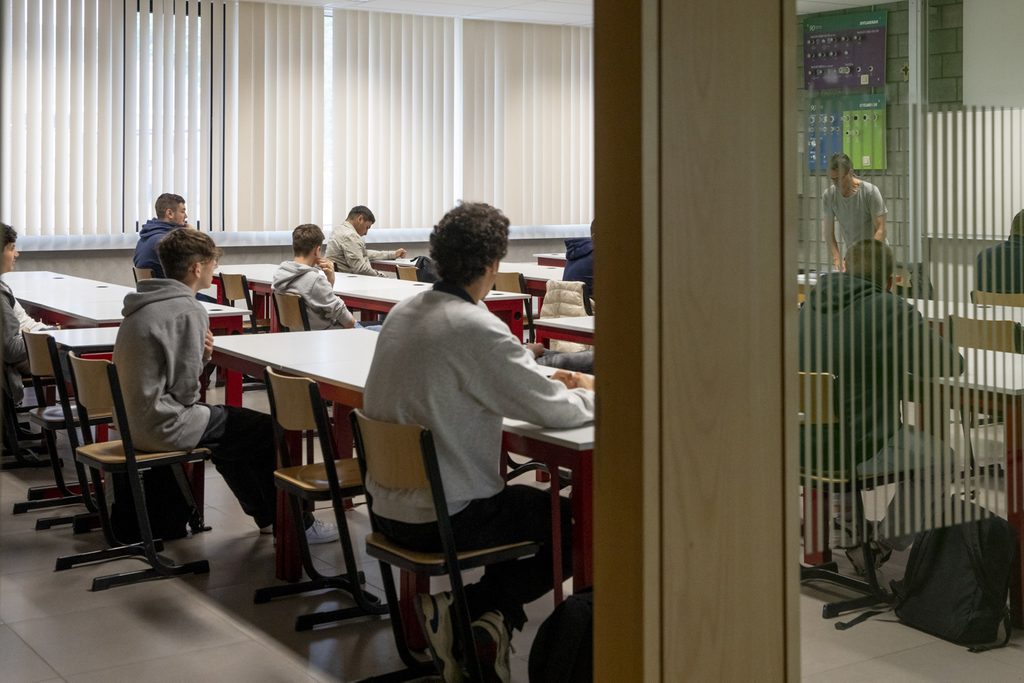The number of pupils in Belgium's Dutch-language schools who were suspended, absent due to illness or "unlawfully missing" this school year has risen significantly, as has the share of young people seeking help for their mental health.
The Centres for Pupil Guidance organisation (CLB), which operates in Dutch-language schools in Brussels and Flanders, stated that the number of "problematic" absences increased by more than a quarter last school year (2022-2023).
"In the last school year, 30,254 pupils (2.46% of the population) came into contact with the CLB due to problematic absences," the latest report read. "These include both unauthorised absences and frequent or long-term absences due to illness." Compared to five years ago (school year 2017-2018), this percentage has increased by 27%.
The rise can in part be framed in the sharply rising number of pupils in Flanders with at least 20 unauthorised half-day absences per school year (+41.2%), the report noted. The number of pupils with at least 20 half-day absences due to illness increased by 42%.
The CLB stressed that absences are a "strong predictor of early school leaving". This is already being reflected in the number of pupils leaving education without adequate qualifications. "There is a great need to work on this preventively in schools and to join forces with all those involved."
The number of suspended pupils has also increased sharply over the past four years to 4,457 pupils, or 0.37% of all Flemish pupils. Moreover, this percentage is higher in special education than in mainstream education. "The right to education of these pupils is compromised by this."
Mental health and issues at home
More pupils are turning to the CLB with questions regarding their mental health. The number of school children who came into contact with the CLB due to emotional development (ranging from school phobia and social anxiety to depression) rose by more than 40%, from 8,000 in the 2018-2019 school year to more than 11,300 in 2022-2023.
However, there is some good news. Since the major peak in 2020, driven by the Covid-19 pandemic and the increased need for emotional development during this crisis, fewer young people are seeking help. But compared with 2018-2019, before the pandemic, the figure has risen dramatically. Additionally, the questions are becoming more complex and students are seeking help at a younger age.
"These figures illustrate the need to continue working on an accessible offer on well-being," the CLB said.
The number of pupils living in a worrying home situation who found their way to the CLB, as well as the share of pupils whose developmental opportunities and/or integrity are threatened, has also risen. The number of pupils whose situation is concerning rose by 56% since the 2018-2019 school year. The CLB explained that this again highlights that pupils are increasingly finding their way to the CLB when faced with distressing situations.
Finally, the CLB carried out 20,851 interventions last school year to welcome non-native newcomers, a remarkable increase compared to previous school years. "We are seeing an increased influx of non-native newcomers."
More than half of the students in Flanders and Brussels interacted with the CLB last academic year (691,238 students or 56% of all students). Overall, this means a higher workload for the CLB and other organisations that they work with. This is leading to long waiting lists, especially for more intensive assistance. In some cases, requests for help sometimes remain unanswered, meaning the situation for pupils can escalate.
The CLB is therefore urgently calling for a more coordinated approach from welfare partners to jointly combat the fragmentation in the landscape of youth services to more easily and quickly refer pupils to the necessary services.

